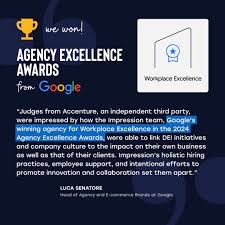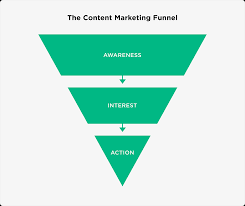Unlocking Brand Success: The Role of a Content Creative Agency
The Power of Content Creative Agencies in Driving Brand Success
In today’s digital age, where online presence is crucial for businesses to thrive, the role of content creative agencies has become more important than ever. These agencies play a vital role in helping brands cut through the noise and connect with their target audience effectively.
Content creative agencies are specialists in developing engaging and compelling content that resonates with consumers. Whether it’s crafting captivating social media posts, producing informative blog articles, or creating visually stunning videos, these agencies have the expertise to create content that drives engagement and builds brand loyalty.
One of the key advantages of working with a content creative agency is their ability to tailor content strategies to meet the unique needs and objectives of each brand. By understanding the brand’s voice, target audience, and industry landscape, these agencies can create bespoke content that stands out in a crowded digital space.
Moreover, content creative agencies are adept at staying abreast of the latest trends and best practices in content marketing. They leverage their knowledge and experience to develop innovative content ideas that capture audience attention and drive results for their clients.
Collaborating with a content creative agency can also save brands valuable time and resources. By outsourcing content creation to experts, brands can focus on other aspects of their business while ensuring that their content strategy is in capable hands.
Overall, the power of content creative agencies lies in their ability to transform brand messaging into impactful storytelling that resonates with consumers. Through strategic planning, creativity, and a deep understanding of digital platforms, these agencies help brands stand out, connect with their audience on a deeper level, and ultimately drive brand success.
Understanding Content Creative Agencies: Key FAQs Answered
- What is content creation services?
- What is creative content for marketing agency?
- What are content creatives?
- What is a creative content agency?
- What is a content strategy agency?
- What is content creativity?
- What does a content creation agency do?
- How do content agencies work?
What is content creation services?
Content creation services encompass the process of developing and producing various forms of content to engage and inform a target audience. This includes creating written content such as articles, blog posts, and website copy, as well as visual content like images, infographics, and videos. Content creation services also involve crafting social media posts, email newsletters, and other digital marketing materials to communicate brand messages effectively. By utilising the expertise of content creation services provided by agencies or professionals, businesses can enhance their online presence, attract and retain customers, and ultimately drive brand success through compelling storytelling and engaging content.
What is creative content for marketing agency?
Creative content for a marketing agency refers to the strategic creation and curation of engaging, original, and compelling content that is specifically designed to promote a brand, product, or service. This type of content is crafted with the aim of capturing the attention of the target audience, driving engagement, and ultimately influencing consumer behaviour. Creative content can take various forms, including blog posts, social media updates, videos, infographics, and more. It is tailored to reflect the brand’s identity and values while resonating with the interests and preferences of the intended audience. By working with a marketing agency that specialises in creative content, businesses can benefit from expertly crafted material that effectively communicates their message and enhances their brand visibility in a competitive digital landscape.
What are content creatives?
Content creatives are the talented individuals within a content creative agency who are responsible for ideating, developing, and producing engaging and compelling content across various digital platforms. These professionals possess a unique blend of creativity, strategic thinking, and technical skills that enable them to craft content that captures audience attention and drives brand success. From writing captivating copy to designing visually appealing graphics and creating multimedia content, content creatives play a crucial role in bringing brand stories to life and connecting with target audiences in meaningful ways.
What is a creative content agency?
A creative content agency is a specialised firm that focuses on developing innovative and engaging content to help brands connect with their target audience effectively. These agencies combine creativity, strategic thinking, and industry expertise to create compelling content across various digital platforms. From crafting captivating social media campaigns to producing informative blog posts and visually appealing videos, a creative content agency plays a crucial role in enhancing brand visibility and engagement. By understanding the brand’s voice, audience preferences, and market trends, these agencies can tailor content strategies that resonate with consumers and drive brand success in the competitive digital landscape.
What is a content strategy agency?
A content strategy agency is a specialised firm that focuses on developing and implementing strategic plans to create, distribute, and manage content effectively for businesses. These agencies work closely with clients to define their goals, target audience, and brand voice, in order to craft a cohesive content strategy that aligns with the overall marketing objectives. By analysing market trends, consumer behaviour, and competitor landscape, a content strategy agency helps businesses deliver relevant and engaging content across various channels to drive brand awareness, engagement, and ultimately achieve business growth.
What is content creativity?
Content creativity is the art of crafting engaging and compelling content that captures the attention of target audiences and resonates with them on a deeper level. It involves thinking beyond traditional approaches and finding innovative ways to communicate brand messages effectively. Content creativity encompasses a range of skills, including storytelling, design, copywriting, and visual communication, all aimed at creating content that is not only informative but also inspiring and memorable. A content creative agency excels in harnessing this creativity to develop unique and impactful content strategies that help brands stand out in a competitive digital landscape.
What does a content creation agency do?
A content creation agency is a specialised firm that focuses on developing and producing various forms of content to help businesses effectively communicate with their target audience. These agencies are experts in crafting engaging and compelling content, including articles, blog posts, social media updates, videos, infographics, and more. They work closely with clients to understand their brand identity, messaging goals, and target market in order to create tailored content strategies that resonate with the audience. By leveraging their creativity, storytelling skills, and industry expertise, content creation agencies play a crucial role in helping brands enhance their online presence, drive engagement, and ultimately achieve their marketing objectives.
How do content agencies work?
Content creative agencies work by collaborating closely with clients to understand their brand, target audience, and communication goals. They begin by conducting thorough research to gain insights into the industry landscape and competitive positioning. Based on this information, content agencies develop tailored content strategies that align with the client’s objectives. This involves ideation, creation, and implementation of various types of content, such as articles, videos, social media posts, and more. Content agencies also focus on measuring the effectiveness of content through analytics and feedback mechanisms to continuously refine and improve the strategy for optimal results. By leveraging their expertise in storytelling, creativity, and digital platforms, content agencies help brands engage with their audience effectively and achieve success in the competitive digital landscape.












